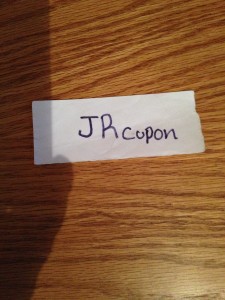A few posts back, I commented on a weekly spelling ritual from my 5th grade classroom. I’ll leak a secret. It’s been about 50 years since I had Mr. Stocker, an older, white-haired gentleman who always wore a suit. Male teachers wore suits, crisp, white shirts and ties back then. The women wore dresses. June probably had her pearls on all over town. I remember my crazy fourth grade teacher (the former military man who whapped student chairs with a pointer to prevent slouching) saying the best paid teacher in Tacoma probably made about $6,000 per year.
Long ago, in a galaxy far, far away, then, I had a teacher who gave us ice cream coupons if we got all the spelling words right. I assume he repaid the lunch staff who gave us a choice of a vanilla bar with chocolate topping, a vanilla bar with Heath Bar topping (my favorite), or a Fudgesicle. I don’t know how many weeks I failed to get my ice cream bar. Maybe one or two. But my motivation was high. In a school with many financially-disadvantaged students, motivation was generally high. Kids would do a lot of work back then for ice cream.
Kids still work for treats. I can’t think how much work I have gotten with the promise of Jolly Rancher coupons, redeemable for candies after school. Some good research seems to suggest that rewards are problematic as student motivators, and I find kernels of truth in that research.* But I want to stand up for the occasional reward ritual.
Mr. Stocker never varied. Week by week, he handed out ice cream rewards. I would not be surprised to discover he inspired Jolly Rancher coupons. Each week, we worked to get our treat.
Treats don’t motivate everyone. Some kids just don’t get excited about ice cream. Maybe their freezers are full of tasty, frozen treats at home. Maybe they don’t like ice cream. Maybe they don’t like work, at least not the work that leads to the ice cream. But I know I worked for ice cream. I admit I had a knack for spelling, but I would go through that list to make sure I was ready for the test. I never wanted to lose my Heath Bar because I skipped studying one word.
I am going to admit I bribed the heck out of my resource class last year while we worked on keyboarding. As typing times went up, I passed out coupons. I can’t exactly measure my effectiveness, but I can say that many boys and girls who might not have taken typing.com seriously, were working as fast as they could to type more words per minute and garner more coupons. The coupon rule was simple: Show me you are typing faster while maintaining reasonable accuracy. I’m sure some students faked their way into a coupon or two by taking advantage of the speed with which I was going around the room handing out future Jolly Ranchers. But participation was high. Enthusiasm was high, even on the part of some boys who were notorious for their lack of academic motivation. In part, I know that the chance to work on the relatively new Chromebooks contributed to my success.
Eduhonesty: Rewards don’t work for many purposes, but in my experience, they will work for shorter-term commitments like those keyboarding classes or weekly vocabulary quizzes. Competitions with prizes motivate many students, especially when students are competing with themselves and their own previous scores. This post is another “see-if-it-works” post. Today’s research might have stopped Mr. Stocker from handing out those ice cream bars, but student effort would have fallen if he did. We students ended up knowing more because of those ice cream bars.
(Unsuccessful attempt at a Jolly Rancher coupon forgery. I normally printed coupons at home, changing paper and font regularly, but every so often I hand wrote coupons when I ran out.)
*See Dr. Richard Curwin’s article at http://www.edutopia.org/blog/reward-fraud-richard-curwin for a good, short breakdown on problems with rewards.


